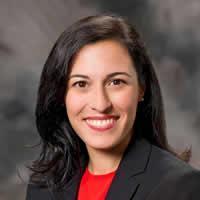
Debbie Akhbari
Class of 2013
Attorney at Helsell Fetterman LLP
What did you do before law school, and what led you to pursue a law degree?
Before and during law school, I worked in the public sector, specifically in higher education. I worked for Washington State University, serving as the program manager for the Community & Economic Development unit. I worked with over 40 faculty and staff around the state whose programs focused on anything from poverty reduction to entrepreneurial assistance and training. Primarily, I worked with faculty and staff contracting, budgeting, financing, and staffing.
I applied to law school because I have always had an interest in the law. I was not sure exactly what I wanted to do, but I knew that a law degree was going to help me get there. Seattle University made sense because of its focus on practical skills such as written advocacy and learning through externships.
How did the part-time program benefit you? What law school experiences helped you in establishing your career?
Financially, the part-time program was the only option for me. I was able to keep my job, work full-time, and take classes as they fit my schedule, overloading credits some semesters or doing an independent study another. SU was always flexible and helped me tailor the program to ensure that I was successful.
During law school, working with the Center for Professional Development (CPD) helped me find my career path. I enjoyed the public sector and never seriously considered leaving. Frankly, working in a firm did not interest me, and when I met with a CPD adviser and told him this, he asked me why I would be closed to an opportunity before I gave it a chance. I ended up applying to Helsell my 3L year and was offered a summer associate position and eventually a job. I found my dream job, all because I took a chance and the very wise advice from CPD.
What advice would you give to prospective or current students?
Work hard, get involved, and find something that you love about being an advocate. For evening students, getting involved can be a challenge. My advice: MAKE the time. Do not wait until graduation to think about life after law school. In our profession, not only is it important to have the necessary credentials, but it is crucial that you build a network of people on the inside who can vouch for you when the time comes. Also, it is important to find something about the law that you love. Whether it's trial work or transactional work, spend time experiencing as many different areas of law as you can. Some of the most successful lawyers I know love their jobs because of the access it gives them to decision makers and a platform for making change. Many do this without ever setting foot in a courtroom or drafting a contract. Law school trains you to think critically and be an advocate. Use these skills to advance the issues for which you have a passion.
